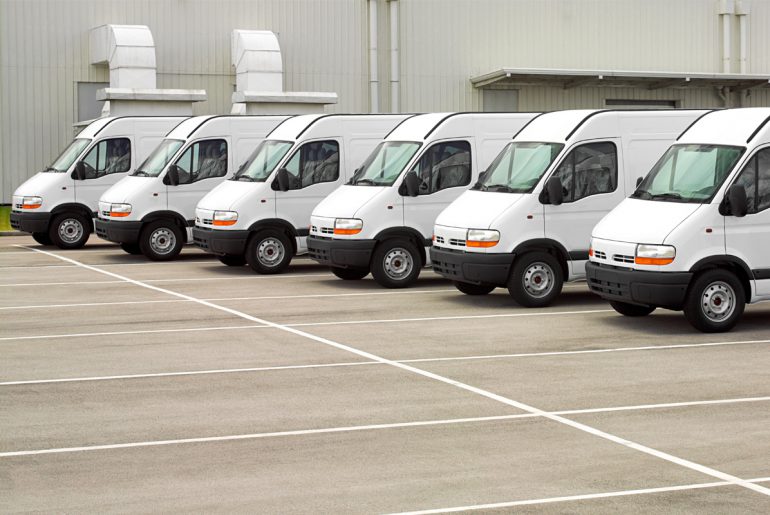Often the final frontier in the journey from warehouse to doorstep, last-mile delivery holds immense significance in determining the overall success of supply chain operations. By recognizing the critical importance of last-mile delivery and investing in innovative solutions, businesses can unlock new avenues for growth, bolster customer loyalty and stay ahead in today’s hyper-competitive marketplace. Embracing the challenges and opportunities of last-mile delivery is essential for building a supply chain that delivers success, one doorstep at a time.
The Challenge of Last-Mile Delivery & Logistics
Last-mile logistics, the final stage of the supply chain where products are delivered to the end consumer, presents a unique set of challenges for businesses. One major obstacle is the complexity of urban environments, characterized by congested roads, limited parking and varying delivery regulations. Navigating these obstacles efficiently while ensuring timely deliveries can be a daunting task. Additionally, the rise of e-commerce has led to increased customer expectations for fast, transparent and flexible delivery options, putting pressure on logistics providers to meet these demands.
Solutions Worth Considering
To address these challenges, businesses are turning to innovative solutions such as route optimization software and real-time tracking systems – like RouteManager. Route optimization software utilizes algorithms to determine the most efficient delivery routes, taking into account factors like traffic patterns, delivery windows and so much more.
By optimizing routes, businesses can reduce fuel consumption, minimize delivery times and improve overall efficiency. Real-time tracking systems provide customers with visibility into the status of their deliveries, enhancing transparency and reducing inquiries to customer service teams. Furthermore, companies are exploring alternative delivery methods, such as drones and autonomous vehicles, to navigate urban environments more effectively and reduce congestion on roads.
These technologies have the potential to revolutionize last-mile logistics by enabling faster and more environmentally friendly delivery options. Embracing technology and innovation allows businesses to overcome the challenges of last-mile logistics and improve the efficiency and effectiveness of their supply chains.
Start Using RouteManager!
7 Reasons Why Last-Mile Delivery Is Critical for Supply Chain Success
- Customer Experience: In the age of instant gratification, customers expect nothing short of excellence when it comes to delivery. Last-mile delivery is the ultimate touchpoint where businesses have the opportunity to exceed customer expectations. A seamless, timely delivery experience can leave a lasting impression, fostering loyalty and positive word-of-mouth.
- Cost Efficiency: While the last-mile delivery process can be costly, optimizing this crucial stage of the supply chain can yield significant cost savings. Through route optimization, vehicle utilization and leveraging technology, businesses can minimize transportation expenses and enhance overall profitability.
- E-Commerce Growth & Urbanization: As online shopping continues to surge, the need for fast and dependable delivery services is on the rise. Urban settings pose distinct obstacles, like traffic jams and scarce parking spots, necessitating inventive strategies to ensure prompt last-mile delivery. Adapting to the preferences of city dwellers is crucial for the prosperity of numerous enterprises.
- Differentiation in a Competitive Market: With competition fiercer than ever, businesses are constantly seeking ways to stand out. An optimized last-mile delivery process can be a powerful differentiator. Offering flexible delivery options, accurate tracking and superior customer service can give businesses a competitive edge and attract discerning consumers.
- Inventory Management Optimization: Effective last-mile delivery is closely intertwined with efficient inventory management. By ensuring products are delivered swiftly and accurately, businesses can minimize inventory holding costs, reduce stockouts and maintain optimal inventory levels, thus enhancing operational efficiency.
- Reverse (Or Return) Logistics: In addition to delivering products to customers, last-mile delivery involves managing returns and exchanges. Effective reverse logistics is crucial for businesses to handle customer returns efficiently, process refunds or exchanges quickly, and uphold high levels of customer satisfaction. A well-optimized last-mile delivery system can simplify the reverse logistics process and reduce the expenses linked to returns.
- Data-Driven Decision Making: The last mile is a treasure trove of valuable data waiting to be harnessed. By collecting and analyzing performance metrics, customer feedback and demand patterns, businesses can gain actionable insights to optimize their last-mile logistics operations, improve route efficiency and enhance overall supply chain resilience.
Closing Thoughts
In conclusion, last-mile delivery plays a critical role in the success of supply chain operations with its ability to directly impact customer satisfaction, operational efficiency and brand reputation. By recognizing and addressing the challenges inherent in last-mile logistics, businesses can leverage innovative solutions to enhance delivery speed, accuracy and sustainability.
From optimizing delivery routes to embracing emerging technologies, such as drones and autonomous vehicles, the key lies in adopting proactive strategies that prioritize customer-centricity and operational excellence. As e-commerce continues to flourish and consumer expectations evolve, the importance of efficient last-mile delivery will only continue to grow, making it imperative for businesses to invest in robust logistics capabilities to stay competitive in the dynamic marketplace.
Try a free demo of RouteManager, a leading last-mile delivery software, today!
Last-Mile Delivery FAQs
What is last-mile delivery?
Last-mile delivery refers to the final stage of the supply chain process where goods are transported from a distribution center or fulfillment center to the end customer’s doorstep.
What does “last mile” mean in supply chain?
In the context of supply chain management, the term “last mile” refers to the final leg of the delivery process where products are transported from a distribution center or warehouse to the end customer’s location. This stage is crucial as it represents the last touchpoint between the business and its customers, directly impacting their overall satisfaction and perception of the brand.
What is the difference between last-mile and logistics?
While last-mile delivery is a crucial part of the overall logistics process, there are key differences between the two concepts. Logistics encompasses the entire supply chain management process, including planning, procurement, transportation, warehousing, and distribution. In contrast, last-mile delivery specifically focuses on the final stage of delivering goods to the end customer.
Logistics involves strategic decision-making to optimize the movement of goods throughout the supply chain, while last-mile delivery is more concerned with the actual delivery of products to customers in a timely and cost-effective manner.




